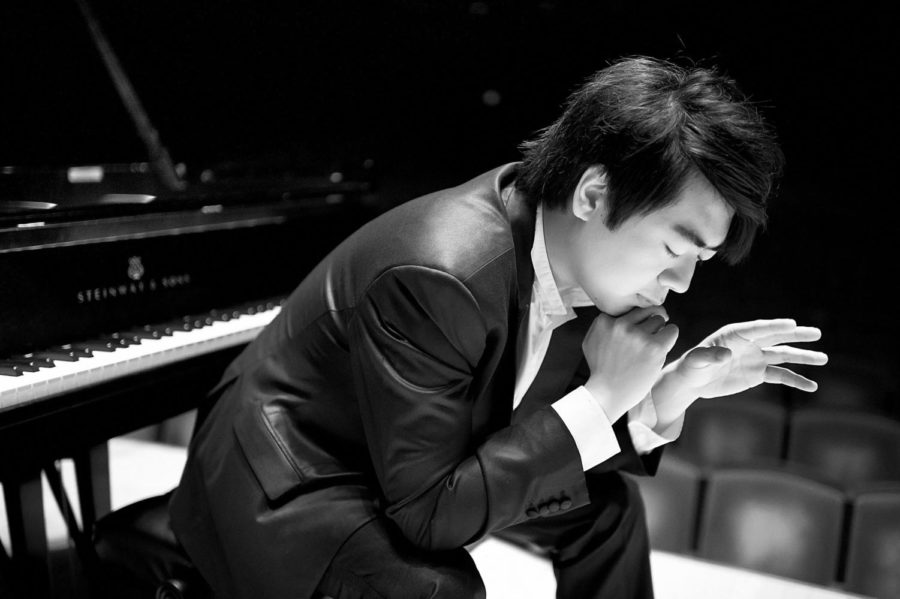In an interview with this paper earlier this year, Chicago Symphony Orchestra (CSO) music director Riccardo Muti said, “In the last [several] years, we have become a visual society. So instead of listening to the music, we want to see conductors exercising on the podium, pianists that communicate with God while playing, violinists that try to impress the public with sexy attitudes…. All this didn’t exist 30 years ago, 40 years ago. Today, with television and other things, people are interested in what they see. Nobody speaks about the spiritual integrity of these [artists]; what they are conveying to the public.”
Previously, Muti’s words felt too cynical to me. Perhaps this is a reflection of my overzealous optimism about the future of classical music and the arts; but it had always seemed to me that audiences are still rife with people who love classical music for its artistry, not for flashy showmanship on the part of conductors or soloists.
Alas, I’ve been converted.
Saturday evening’s CSO performance, expertly led by French conductor Charles Dutoit, was a frightening validation of Muti’s words. The Chinese pianist Lang Lang, whose celebrity drew a near-capacity crowd to Orchestra Hall, joined the orchestra for Prokofiev’s fiery third piano concerto. When he arrived on stage to boisterous applause, the energy in the hall was at a Yo- Yo Ma level of ecstasy.
But Lang Lang is no Ma. Unlike Ma, who is arguably one of, if not the most famous classical musicians alive today, Lang Lang’s celebrity is puzzling.

In signature Lang Lang style, the pianist let his hands fly dramatically from the keyboard after complex passages. Other times, he conducted the orchestra with his left hand during the lengthy piano rests, unwilling to give up the spotlight. Yo-Yo Ma respects the intentions of composers when he performs and is a consistently gracious soloist—Lang Lang fits neither description.
However, the audience drank up the drama like it was the nectar of the gods, clapping loudly at the conclusion of the first movement.
When Lang Lang played the exposition, he slammed on the keys with a complete lack of regard for the light touch this energetic music needs. During the second movement, the orchestra frantically tried to keep pace with Lang Lang’s breakneck speeds, and Dutoit, unwilling to fight the soloist, resigned to the overly flashy tempi. It was only during the rollicking, jazzy third variation in this movement that I felt Lang Lang’s heavy-handedness was actually a blessing rather than a curse.
The orchestra, however, played extremely well under Dutoit’s masterful baton. The ensemble was sensitive to the nuances of Prokofiev’s score, and the signature clarinet solo in the opening bars of the concerto set the tone for a lovely interpretation of the first movement’s Andante.
However, the third movement was another testament to the orchestra’s responsiveness to Dutoit and Lang Lang’s utter lack thereof. Part of the reason this score is so brilliant is that, unlike most of the piano concerti of the Romantic period, the piano solo part is an integral puzzle piece in the overall orchestral framework. Amid opportunities for solo piano virtuosity, a successful rendition of this piece is dependent on the soloist and orchestra acting in unity, particularly in this concluding movement.
Yet what was supposed to be a conversation between orchestra and piano turned into more of a disjointed argument: the orchestra was trying to have thoughtful commentary and the piano was being a “that kid”—enjoying the sound of his own voice without listening to anyone else, even if it was entirely out of the spirit of the debate.
When the concerto concluded, the audience nearly exploded with enthusiasm for the soloist, who played a brief encore of Ponce’s Intermezzo No. 1 in an attempt to showcase a more sensitive side. Yet this still felt like a Lang Lang soap opera starring an overdone left hand banging away on the piano. Nonetheless, the audience remained enamored with his “sensitivity”—he received a second standing ovation.
The true magic of the evening came when Dutoit led the CSO in Stravinsky’s ballet score for The Firebird. Dutoit, a master of 20th-century Russian scores, lent his skilled hand beautifully to this challenging work. The interpretation was everything The Firebird should be—frightening in its intensity at times, heart-wrenchingly beautiful at others.
Stravinsky calls for a near-Wagnerian size orchestra for this masterwork, but the large size never felt cumbersome. On the contrary, Dutoit drew sensitive dynamic contrast from the players that would have been impressive for a smaller ensemble, let alone one of this magnitude.
The concert’s opening was also a testament to Dutoit’s coordination with the CSO. Stravinsky’s charming, four-minute piece Fireworks was performed vibrantly, with the wind section setting the tone for an evening of consistent excellence.
It was unfortunate, then, that the ensemble’s intelligent playing was overshadowed in the Prokofiev concerto by a pianist who tried to “communicate with God while playing.” It was even more unfortunate that the audience was touched by this.
Maestro Muti, I’m sorry to ever have doubted you.










